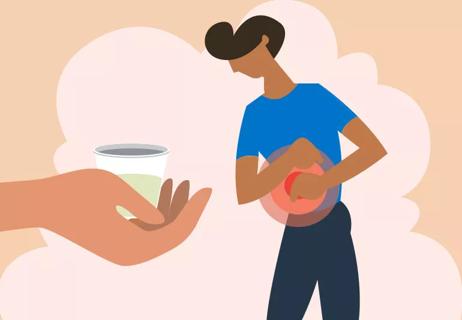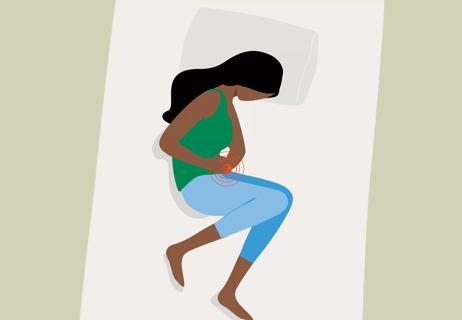It could be diet or it could be something else

Mac ‘n’ cheese, string cheese, pizza with extra cheese, cheeseburgers — yes, your kid likely loves them all. But is all of that cheese in your child’s diet too much of a good thing? And can all of that cheese cause constipation?
Advertisement
Cleveland Clinic is a non-profit academic medical center. Advertising on our site helps support our mission. We do not endorse non-Cleveland Clinic products or services. Policy
“When parents bring their child to see me because of constipation, we definitely talk about diet. However, diet is not the only factor,” says pediatric gastroenterologist Jacob Kurowski, MD.
A constipation diagnosis typically means your child has hard bowel movements that are difficult to pass and, sometimes, they may also cause pain. Some children will have fewer than three bowel movements a week, while others will have smaller bowel movements frequently throughout the day.
Eating too much cheese, bananas, rice or milk can contribute to the problem, Dr. Kurowski says. So can a diet that’s low in fiber, water and other fluids.
“I don’t have a major problem with children eating cheese in particular. It’s the culmination of the diet,” he says.
Other factors that also may play a role in causing constipation include stress, your child’s age and other behaviors.
“Children often become constipated because they hold in their bowel movements,” Dr. Kurowski explains.
They may do this for a variety of reasons, including:
The size, sounds and location of a toilet are sometimes overwhelming for young children, he says.
Advertisement
Make sure your child eats healthy, well-balanced meals. This is good for your child’s overall well-being in and out of the bathroom.
To do this:
Dr. Kurowski says the goal is to find a diet that works for your child and to modify any behaviors or obstacles that might cause problems in the bathroom. Typically, he recommends stool softeners at the beginning of treatment with the goal of weaning kids off of them when their bathroom moves are much smoother.
If you change up your child’s diet, but they’re still struggling with constipation, ask their healthcare provider for help. Your child might be more willing to open up about pooping and other sensitive subjects with another adult who they trust.
And make the toilet kid-friendlier if you haven’t already. It can be a little scary when they have to poop so high up from the ground. Dr. Kurowski offers this advice:
“If their feet don’t touch the ground when they sit on the toilet, they might need a stepping stool. Toilets are for adults and not for kids.”
The ultimate goal is to make diet and/or behavior modifications so your child can be an effective pooper.
Advertisement

Sign up for our Health Essentials emails for expert guidance on nutrition, fitness, sleep, skin care and more.
Learn more about our editorial process.
Advertisement

Drinking water, eating high-fiber foods and exercising are just a few of the ways to get back to your ‘regular’ self

It might be, but it’s more likely that your symptoms of constipation and back pain are caused by underlying conditions

From staying hydrated to staying on schedule, these tips can help you stay regular on-the-go

Developed in the 1800s, this remedy remains a viable solution today

Prunes earn the title of ‘nature’s remedy’ for bowel movement issues

Stool softeners are a type of laxative that softens your stool, making it easier to poop

A dietitian weighs in on social media’s popular constipation recommendation

Eat foods high in fiber, drink water and consider using a laxative

Even small moments of time outdoors can help reduce stress, boost mood and restore a sense of calm

A correct prescription helps your eyes see clearly — but as natural changes occur, you may need stronger or different eyeglasses

Both are medical emergencies, but they are very distinct events with different causes